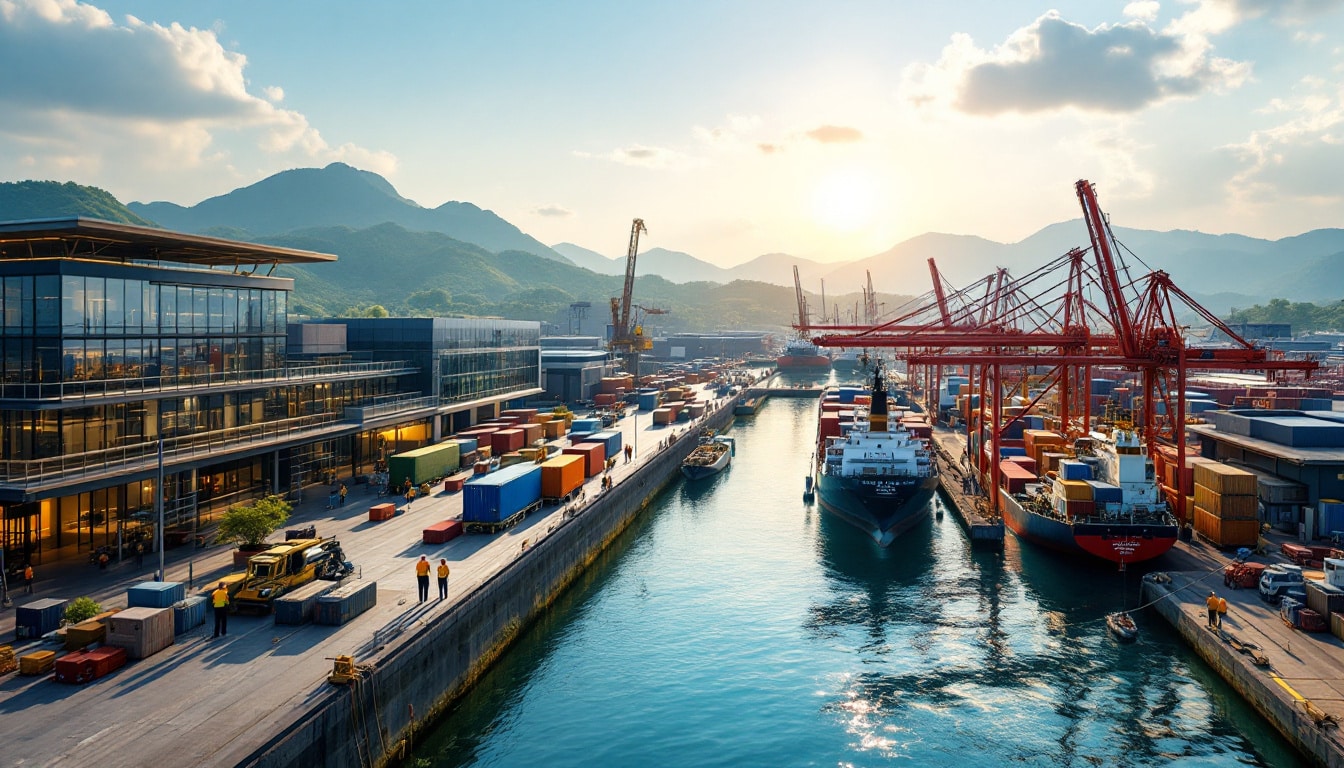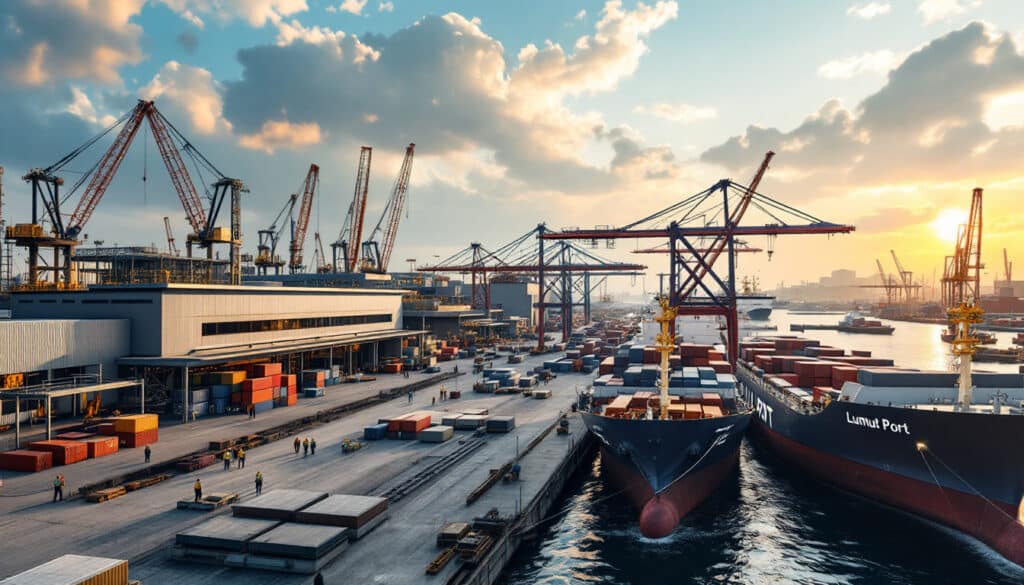Protecting your online privacy is more important than ever. Cookies play an essential role in how online services operate. Understanding their use can help you better control your data.
We use cookies and data to provide and maintain our services. These technologies allow us to track interruptions and protect against spam, fraud, and abuse. Additionally, they help us measure public engagement and site statistics to understand how our services are used and to improve their quality.
If you choose to “Accept all”, we will also use cookies and data to develop and improve new services, deliver and measure the effectiveness of advertisements, as well as to display personalized content and personalized ads based on your settings.
On the other hand, if you opt for “Reject all”, we will not use cookies for these additional purposes. Non-personalized content is influenced by factors such as the content currently being viewed, the activity of your active search session, and your location. Non-personalized ads depend on the content you are viewing and your general location.
Personalized content and ads may also include more relevant results, recommendations, and tailored ads based on your previous activity in this browser, such as your previous Google searches. We also use cookies and data to tailor the experience to be age-appropriate, if relevant.
Select “More options” to see additional information, including details on managing your privacy settings. You can also visit g.co/privacytools at any time.

Table of Contents
ToggleOverview of Lumut, a Promising Maritime Industrial City
Lumut, located in the state of Perak in Malaysia, is establishing itself as a key maritime industrial city in the regional economy. Strategically nestled along the west coast of the Malay Peninsula, Lumut enjoys privileged access to international maritime routes, making it an essential logistics hub. The city’s modern port infrastructure is designed to accommodate a variety of vessels, from commercial freighters to cruise ships, thus enhancing its role in global maritime trade.
In addition to its dynamic port, Lumut is heavily investing in the development of its industrial and technological infrastructure. These targeted investments aim to attract companies specializing in the sectors of shipbuilding, logistics, and marine technologies. This strategy not only diversifies the local economy but also creates an environment conducive to innovation and sustainability.
The economic growth of Lumut is also supported by a skilled workforce and government initiatives aimed at stimulating foreign investments. With tailored training programs and attractive tax incentives, Lumut positions itself as a preferred choice for both domestic and international investors. This combination of favorable factors contributes to Lumut’s ambitious projection of generating 72 billion RM over the next 25 years.
What Are the Economic Drivers Behind Lumut’s Growth?
Lumut’s projection of generating 72 billion RM over the next 25 years is based on several key economic drivers. First, the maritime sector plays a central role in this dynamic. The city is home to numerous companies specializing in shipbuilding, ship maintenance, and the provision of logistics services. These industries benefit from Lumut’s strategic location, facilitating local and international trade exchanges.
Secondly, the development of marine technologies significantly contributes to this growth. Lumut invests in research and development of innovative solutions for the maritime industry, such as port automation, smart resource management, and the use of renewable energy. These technological advancements improve operational efficiency and reduce costs, making local businesses more competitive in the global market.
Furthermore, maritime tourism represents another economic pillar for Lumut. The city is a popular destination for cruises and water activities, attracting visitors from around the world. The increase in tourist numbers generates substantial income for the hospitality, restaurant, and leisure sectors, thereby strengthening the local economy.
Finally, government initiatives play a crucial role in supporting and stimulating Lumut’s economic growth. Business-friendly policies, quality infrastructure, and attractive tax incentives encourage companies to establish and expand in the region. These measures help create a stable and prosperous economic environment, essential for achieving the city’s ambitious financial goals.
What Key Industries Contribute to This Economic Projection?
The projection of 72 billion RM for Lumut over the next 25 years is primarily fueled by several key industries that thrive in the city. First, the shipbuilding industry is one of the main contributors. Lumut hosts several modern shipyards capable of constructing and repairing a variety of vessels, ranging from fishing boats to cruise ships. This industry benefits from the growing demand for high-quality ships, both in the domestic and international markets.
Next, the logistics and maritime transport sector plays a crucial role in Lumut’s economy. With its well-equipped port, the city is a nerve center for maritime commerce, facilitating large-scale import and export activities. Logistics companies provide comprehensive services, including storage, distribution, and supply chain management, thus meeting the needs of both local and international businesses.
The marine technologies sector is also a major player in this economic projection. Technology companies in Lumut develop advanced solutions for the maritime industry, such as intelligent navigation systems, environmental monitoring technologies, and tools for managing marine resources. These innovations enhance operational efficiency and contribute to the sustainability of maritime activities.
Moreover, the maritime tourism industry significantly contributes to Lumut’s economy. Cruises, boat excursions, and water activities attract millions of visitors each year, generating substantial revenue for the hospitality, restaurant, and leisure sectors. The development of tourist resorts and infrastructure dedicated to tourism enhances Lumut’s appeal as a leading tourist destination.
Finally, the financial and professional services sector supports Lumut’s economic growth by providing essential services to local and international businesses. Banks, insurance companies, consulting firms, and other professional service providers offer the necessary support to facilitate business operations and attract foreign investments.
How Do Infrastructures Support Lumut’s Development?
Infrastructures play a fundamental role in the economic development of Lumut, directly contributing to the projection of 72 billion RM over the next 25 years. The modern and well-equipped port of Lumut is at the heart of this dynamic. It features docks suited to accommodate various types of vessels, as well as specialized terminals for cargo, vehicles, and passengers. This port infrastructure is essential for facilitating international trade exchanges and strengthening Lumut’s position as a major logistics hub.
In parallel, Lumut is heavily investing in land transport infrastructure. A well-developed road network connects the port efficiently to the city’s industrial, commercial, and residential areas. Moreover, projects aimed at improving public transport and railway connections are underway, aimed at reducing travel times and increasing the mobility of workers and goods.
The energy infrastructure is also noteworthy. Lumut enjoys a stable and reliable energy supply, with modern electricity production and distribution facilities. Initiatives to integrate renewable energy sources, such as solar and wind energy, are also being implemented to ensure sustainable growth and reduce the city’s carbon footprint.
Communication infrastructures also play a key role. Lumut has an advanced telecommunications network, including fiber optics and high-quality mobile services. This enables businesses to benefit from fast and reliable internet connections, essential for daily operations and the deployment of advanced technologies.
Finally, support infrastructures, such as training facilities and research centers, are being developed to support local industries. Educational institutions specializing in marine technologies and logistics provide a qualified workforce, while research centers collaborate with businesses to innovate and improve industrial processes.
What is the Importance of Environmental Sustainability in Lumut?
Environmental sustainability occupies a central place in Lumut’s development as a maritime industrial city. While the city aims to generate 72 billion RM over the next 25 years, it is also committed to minimizing its ecological impact and promoting sustainable practices in all its industrial and commercial activities.
Maritime companies in Lumut are adopting green technologies to reduce carbon emissions and improve energy efficiency. The use of alternative fuels, such as liquefied natural gas (LNG) and biofuels, is encouraged to decrease the environmental footprint of ships. Additionally, initiatives aimed at optimizing energy consumption in port infrastructures contribute to more responsible resource management.
The protection of surrounding marine ecosystems is also a priority. Lumut implements monitoring and preservation programs for marine habitats, ensuring biodiversity and the health of local ecosystems. Partnerships with environmental organizations help develop effective conservation strategies and raise awareness among stakeholders about the importance of environmental protection.
Recycling and waste management also play a crucial role in Lumut’s sustainability strategy. Advanced waste treatment systems are in place to reduce pollution and promote material recycling. Businesses are encouraged to adopt cleaner production practices and minimize industrial waste, thereby contributing to a circular economy.
Finally, investment in renewable energy is an essential component of sustainability in Lumut. The city is developing solar and wind projects to diversify its energy portfolio and reduce reliance on fossil fuels. These initiatives not only support economic growth but also ensure a transition to a greener economy that is resilient to climate challenges.
What Challenges Must Lumut Overcome to Achieve Its Goals?
Despite the promising economic outlook, Lumut faces several challenges in realizing its projection of 72 billion RM over the next 25 years. One of the main obstacles is regional competition. Other maritime industrial cities, both in Asia and worldwide, are also seeking to attract investments and businesses, which requires Lumut to constantly maintain and improve its infrastructures and services to stay competitive.
Another major challenge is workforce management. To support rapid economic growth, Lumut must ensure it has a qualified and sufficient workforce. This involves ongoing investments in education and vocational training, as well as strategies for attracting and retaining talent in key sectors of the maritime and technology industries.
Environmental sustainability also represents a complex challenge. While Lumut is committed to adopting sustainable practices, the implementation of these initiatives can be costly and technically demanding. It is essential to find a balance between economic growth and environmental protection, ensuring that industrial progress does not compromise local ecosystems.
Global economic fluctuations pose another challenge. Variations in commodity prices, changes in international trade policies, and economic crises can affect Lumut’s revenue stability and predictability. The city must develop economic resilience strategies to mitigate the impacts of global uncertainties and maintain sustained growth.
Finally, technological adaptation is crucial. As technologies evolve rapidly, Lumut must invest in research and development to remain at the forefront of innovation. The adoption of new technologies, such as artificial intelligence, the Internet of Things (IoT), and robotics, is essential to improving operational efficiency and responding to the changing demands of the market.
What Opportunities Are Presenting Themselves to Lumut in the Coming Years?
Despite the challenges, Lumut has numerous opportunities to support its economic growth and achieve the projection of 72 billion RM over the next 25 years. One of the most significant opportunities lies in the expansion of the marine technologies sector. By investing in research and development, Lumut can become a leader in innovative solutions for the maritime industry, thus attracting technology companies and international investors.
Economic diversification is another key opportunity. By broadening its industrial base beyond shipbuilding and logistics, Lumut can develop new sectors such as renewable energy, advanced manufacturing, and information technology. This diversification reduces dependence on a single sector and creates a more resilient economy in the face of market fluctuations.
The development of maritime tourism also offers considerable potential. By enhancing tourism infrastructure, promoting local attractions, and offering diverse services, Lumut can attract a growing number of visitors. This not only generates direct revenue but also stimulates the hospitality, restaurant, and retail sectors, contributing to overall economic growth.
International partnerships represent another strategic opportunity. Lumut can strengthen its trade and technological relationships with partner countries, thus facilitating the exchange of knowledge, technologies, and investments. These collaborations can lead to joint projects, skill exchanges, and access to new markets, enhancing Lumut’s position on the global stage.
Finally, focusing on sustainability paves the way for green initiatives and ecological innovations. By incorporating sustainable practices into all its industrial activities, Lumut can attract environmentally conscious companies and meet the growing demand for planet-friendly solutions. This green orientation not only protects local natural resources but also creates a positive image of Lumut as a modern and responsible city.
How Is Lumut Attracting Foreign Investment?
Lumut is implementing a series of effective strategies to attract the foreign investments needed for its economic growth of 72 billion RM over the next 25 years. One of the main initiatives is the creation of a business-friendly environment, characterized by favorable tax policies, streamlined regulations, and financial incentives for foreign investors. These measures make the establishment and expansion of international businesses more attractive and less costly.
Moreover, Lumut invests in world-class infrastructures, including a modern port, specialized industrial zones, and advanced logistics facilities. The quality and reliability of these infrastructures are key factors for companies looking to optimize their operations and reduce logistics costs. A well-equipped and efficient port facilitates international trade exchanges, making Lumut a preferred choice for investors.
A skilled workforce is another major asset. Lumut has a strong educational network, with training institutions specializing in marine technologies and logistics. Ongoing training programs and partnerships with local industries ensure that workers possess the necessary skills to meet the demands of international businesses. This availability of a qualified workforce reassures investors about Lumut’s capacity to support their operations.
Public-private partnerships also play a crucial role. The government of Lumut collaborates closely with the private sector to develop joint projects, share resources, and promote development initiatives. These collaborations enhance investors’ confidence and demonstrate the city’s commitment to supporting economic growth and innovation.
Finally, international promotion and targeted marketing efforts contribute to positioning Lumut on the global stage. Trade missions, international exhibitions, and advertising campaigns highlight the competitive advantages of Lumut, attracting the attention of potential investors. By showcasing its advanced infrastructures, skilled workforce, and favorable economic environment, Lumut successfully attracts international partners and stimulates foreign investments.
What Role Does Technology Play in Lumut’s Development?
Technology plays an essential role in Lumut’s development, directly supporting the economic projection of 72 billion RM over the next 25 years. The integration of advanced technologies in industrial and logistical operations improves efficiency, reduces costs, and enhances the competitiveness of local businesses in the global market.
In the maritime sector, cutting-edge technologies such as the Internet of Things (IoT), artificial intelligence (AI), and robotics are widely adopted. These technologies optimize port operations by automating cargo handling processes, improving resource management, and ensuring real-time monitoring of maritime activities. The use of AI also helps forecast market trends and optimize transport routes, thereby contributing to more efficient and sustainable logistics.
Lumut’s infrastructures also benefit from technological innovations. Intelligent port management systems facilitate the coordination of vessels and the management of goods flow, reducing waiting times and increasing productivity. Additionally, advanced communication technologies ensure seamless connectivity among various economic actors, promoting collaboration and real-time information exchange.
In the realm of research and development, Lumut encourages innovation through specialized research centers and collaborations with universities and technological institutes. These initiatives allow for the development of new technological solutions tailored to the specific needs of the maritime industry, thereby strengthening Lumut’s position as a technological leader.
The digital transformation of local businesses is also a priority. By adopting digital tools such as integrated management systems (ERP), e-commerce platforms, and advanced cybersecurity solutions, businesses in Lumut can improve their operational efficiency, access new markets, and protect sensitive data from cyber threats.
Finally, technology plays a key role in promoting environmental sustainability. Technological solutions enable the monitoring and reduction of carbon emissions, effective management of industrial waste, and development of renewable energies. The integration of such technologies contributes to a greener and more sustainable economic growth, aligned with Lumut’s sustainable development goals.
What are the Socio-Economic Impacts of this Growth for Lumut?
The projection of 72 billion RM generated by Lumut over the next 25 years will have major socio-economic impacts on the city and its region. First, this significant economic growth will translate into massive job creation. The sectors of shipbuilding, logistics, marine technologies, and maritime tourism will offer numerous job opportunities, reducing unemployment rates and improving the standard of living for Lumut residents.
Moreover, the increase in revenue generated by these industries will stimulate demand for various services and infrastructures in the region. This includes the development of new residential facilities, shopping centers, healthcare, and education infrastructures. The improvement of public infrastructures will enhance the quality of life for residents, making Lumut a more attractive city to live and work in.
Investment in education and vocational training will also yield positive returns. With a skilled and well-trained workforce, Lumut will become a center of excellence for marine technologies and related trades. This will not only attract high-tech companies but also encourage young talents to remain in the region, thus fostering sustainable economic growth.
Lumut’s economic diversification will contribute to greater resilience against global economic fluctuations. By having a varied industrial base, the city will be less reliant on a single sector, which will mitigate risks associated with global economic crises and ensure stable long-term growth.
Additionally, Lumut’s economic growth will lead to increased investments in sustainability and environmental protection initiatives. This will result in improved air, water, and green spaces, contributing to better public health and a healthier environment for future generations.
Lastly, Lumut’s rise as a maritime industrial hub will enhance its influence and attractiveness at the regional and national levels. The city will become a dynamic center for business, technology, and innovation, attracting companies, investors, and talents from around the world, positioning Lumut as a model of economic success and sustainable development.









